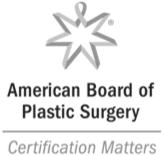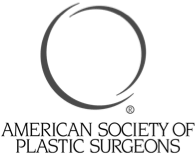Q&A With Dr. Brzowski about Breast Implant Illness (BII)
Q: What is Breast Implant Illness (BII)?
A: There are women with breast implants who self-identify (they have individually and without the aid of a medical professional determined that they are suffering from this disorder) and present with various systemic symptoms that they believe are related to their breast implants. They refer to these symptoms as Breast Implant Illness (BII). Breast Implant Illness (BII) is a term used by these women who to describe a variety of symptoms including (but not limited to) fatigue, chest pain, hair loss, headaches, chills, photosensitivity, chronic pain, rash, body odor, anxiety, brain fog, sleep disturbance, depression, neurologic issues and hormonal issues that they feel are directly connected to their saline or silicone, breast implants. They likewise do not distinguish between smooth or textured devices. The recent increase in patients reporting Breast Implant Illness (BII) symptoms appears to be related to social media. There is one Facebook group alone with more than 50,000 members, all of whom report Breast Implant Illness (BII) symptoms. This is not to say that social media is the cause of Breast Implant Illness (BII) however, it may account for the rapid increases in patient reporting. BII IS NOT AN OFFICIAL MEDICAL DIAGNOSIS. I cannot stress this point firmly enough. No medical organization or body of physicians has established this as a true medical disorder. The terminology and existence of such a phenomenon has originated solely from within the group of individuals who feel that their breast implants are to blame for the symptoms that have been mentioned above.
Q: Is there a link between medical grade silicone implants and any disease?
A: Silicone is an element that exists in nature as crystalline silica, which has been shown to activate the immune system in conditions such as systemic sclerosis which has been seen in stone masons. Silicone used in breast implants is different and to date has not been proven to cause any disease. This silicone does not exist in nature, it is created by hydroxylating silica to form polydimethylsiloxane. Medical grade silicone has had antioxidants, dyes, and plasticizers removed during processing.
Q: Are there any tests that would indicate a connection between breast implants and symptoms that are being labelled Breast Implant Illness (BII)?
A: There is no diagnostic testing specifically for Breast Implant Illness (BII). There are tests for autoimmune diseases that can be performed to evaluate for potential causes of a patient’s symptoms. There are patients who have symptoms they attribute to Breast Implant Illness (BII) with positive immune testing and others with all laboratory tests which show no abnormalities. Lab testing for BII is not possible.
Q: Is there any scientific data that shows that breast implants cause these symptoms or any disease entity?
A: NO. In 1999, The Institute of Medicine Committee on the Safety of Silicone conducted an extensive review of the available literature and concluded there was no demonstrated clear link between silicone implants and any systemic illness. There have been studies of many different sizes and design to look at the safety of breast implants themselves. These have looked at specific autoimmune disorders and diseases. In aggregate, these studies show little to no links between breast implants and any disease. Studies of patients who have symptoms that they have related to their breast implants have not shown consistent laboratory abnormalities to define a distinct syndrome. In fact, because of the large volume of studies performed using the most rigid scientific methods that failed to show any medical concerns with regards to silicone breast implants and these types of disorders, the FDA permitted largely unrestricted use of these devices in November of 2006. To-date, there has been very little in the way of research into this entity that has been labelled Breast Implant Illness (BII) by women with breast implants.
Q: Does implant removal improve patient’s symptoms or cure a patient who has a medically diagnosed disease entity like an autoimmune disease?
A: Various studies show different degrees of improvement in patient symptoms after removal of their breast implants, some of which are temporary, and some showing permanent resolution of symptoms. However, there are no consistent responses to implant removal in this group of patients: some have improvement, some do not. This further confuses the issue regarding any relationship between these symptoms and the existence of breast implants.
Q: What are plastic surgeons doing to better understand this group of systemic symptoms being called Breast Implant Illness (BII)?
A: Because there are many women that self-identify as having Breast Implant Illness (BII), we are listening. There is a new scientific study being created to examine this entity. We cannot yet define BII and therefore cannot say with any certainty that it exists, because we do not have any tests we can run to prove or disprove its existence. However, we can listen to and partner with our patients to determine what is the best course of action to address their complaints, be it explantation or otherwise.
Q: What needs to be done when a patient complains of Breast Implant Illness (BII) symptoms?
A: Options can include further medical work up with or without the consultation of a rheumatologist, observation without medical work up, implant removal without capsulectomy, exchange with or without capsulectomy, removal with total capsulectomy, or removal with en bloc capsulectomy. Patients who present with concerns of Breast Implant Illness (BII) have real symptoms that often cannot be categorized into any specific know disease entity. This does not mean their symptoms are not real and they deserve a full evaluation. The various options need to be discussed and hopefully, with further research, we may be able to determine which patients may see symptom improvement or resolution with removal of their implants and which may not see any change.
Q: If after the discussion of risks and the possibility of no improvement of symptoms post-explantation is discussed with a patient, what should be done if the patient demands an “en bloc” or “total” capsulectomy with their explantation?
A: There are many medical inaccuracies perpetuated by the internet. BII patients tend to believe that a total capsulectomy is necessary to remove all causative agents and they prefer it en bloc. It is important to understand that it is not always possible to remove all of the capsule. Sometimes a portion of the capsule must be left behind or is disintegrated with the use of electrocautery to prevent significant damage to muscle, rib or lung. There are increased surgical risks associated with en bloc capsulectomy which requires a complete dissection of all the tissues surrounding the breast implant. Furthermore, we do not have enough collective data to guarantee any improvement in the symptoms labelled Breast Implant Illness (BII).
Q: What is the risk of developing Breast Implant Illness (BII)?
A: As there is no definitive link between the often subjective and divergent list of symptoms, and no means for testing, there is no ‘known’ risk. Many of the symptoms described by breast implant patients are experienced by the general public on a regular basis with or without implants. That isn’t to write-off a potential connection, but no connection has been established to-date.
Q: What is the FDA doing about complaints regarding the existence of Breast Implant Illness (BII)?
A: On March 25 and 26, 2019, the General and Plastic Surgery Devices Panel of the Medical Devices Advisory Committee will discuss and make recommendations regarding the benefits and risks of breast implants indicated for breast augmentation and reconstruction concerning the following topics: (1) breast implant associated anaplastic large cell lymphoma (BIA-ALCL); (2) systemic symptoms reported in patients receiving breast implants; (3) the use of registries for breast implant surveillance; (4) magnetic resonance imaging screening for silent rupture of silicone gel filled breast implants; (5) the use of surgical mesh in breast procedures such as breast reconstruction and mastopexy; (6) the use of real-world data and patient perspectives in regulatory decision making, and (7) best practices for informed consent discussions between patients and clinicians. During this meeting, no new scientific evidence not already available to plastic surgeons will be assessed. No previously unknown information will be revealed from breast implant manufacturers. The FDA will only have the testimony of the experts in breast implants (many of whom have presented research and data to the FDA previously) and the testimony of private individuals concerned with this issue surrounding breast implants (historical and anecdotal accounts). It is highly unlikely that the FDA will come to any conclusion not already reached by the medical community: there is no demonstrated clear link between silicone implants and any systemic illness. Many of us believe that the FDA will suggest continued research into the topic and that we continue to monitor any symptoms that occur within our patients and that these be reported into a large national data bank (which I do participate in). Furthermore, it is most likely that the FDA will not suggest any alteration in our current practices and that they will continue to support unrestricted use of all types of currently available silicone implants for both aesthetic and reconstructive procedures.



